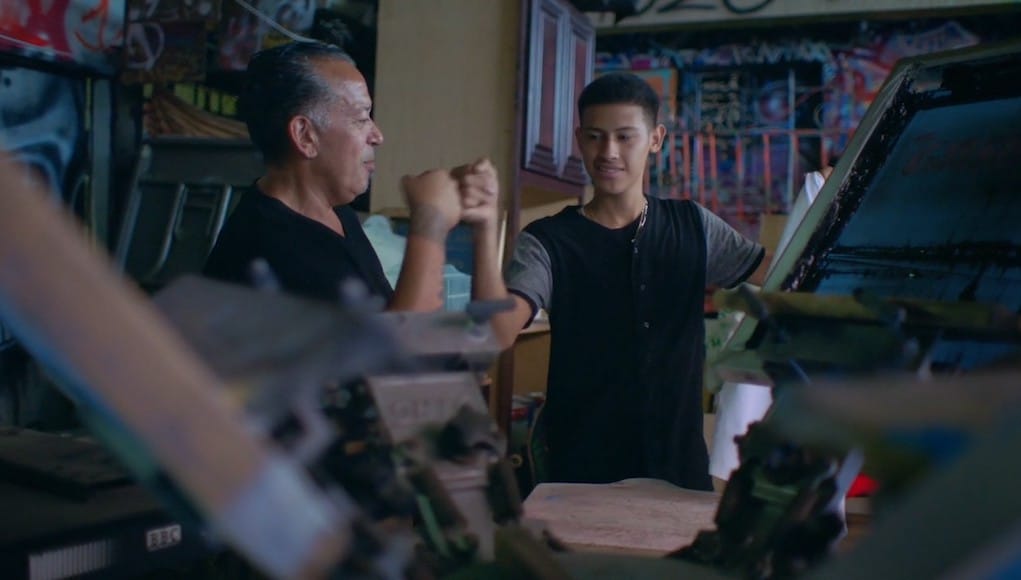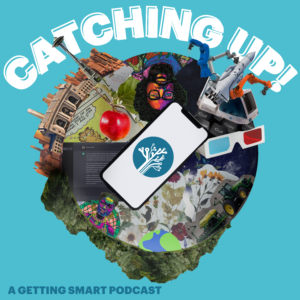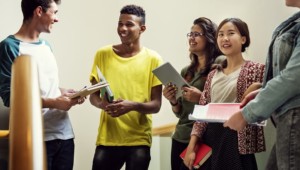Powerful Learning Experiences: Why All Students Deserve Access

By Connie Yowell and Tom Vander Ark
Consider for a moment how access to learning experiences can vary dramatically for students. One student goes to a school where they regularly conduct research projects, they can freely work in the school’s makerspace, they compete on the debate team, and have a summer job with real responsibility. Networking and finding opportunities within the community also come easily to this student.
The other student spends their school day filling out worksheets, very rarely are they engaged in projects and action research, and their afterschool job is at a fast food restaurant. They’re passionate about graphic design but they have no idea how or where to turn to obtain those skills.
The equity gap in America starts as an experience gap. Oftentimes, many students from a low socioeconomic status and minority background lack access to the learning experiences that their wealthier and non-minority peers participate in. And yet in many communities, the learning experiences, especially out-of-school experiences, do exist–it just becomes a matter of how to navigate them.
It is time for us to focus on eliminating the experience gap — to ensure that all students have access to robust in and out of school learning experiences which prepare them for the future of learning and work.
Six reasons powerful experiences matter
- Voice and choice build agency. Jonathan Rochelle, Director of Product Management at Google, thinks confidence is the most important disposition for the innovation economy. That starts with the ability to make some choices in what to learn, when and how. One example of this are the playlists that LRNG has developed which not only provide flexible learning environments but also provide students with a choice to turn what they’re passionate about into what they choose to learn. Playlists are curated into media-rich thematic experiences which students can progress through online and within their community.
- Active learning beats passive consumption. Students learn best by doing. Through collaborating with peers, engaging authentically with the learning material, and actively participating in learning experiences students deepen their independent, creative, and critical thinking skills.
- Taking initiative provides opportunity. Through authentic experiences, students learn to take initiative, to shape impact opportunities including projects, campaigns, and startup organizations.
- Extended challenges build priority skills. Students should not fly through every project or research experience with ease. By experiencing challenges or difficulties in learning, students are able to problem solve and apply critical thinking — skills that are essential for their academic and career growth. What’s more is they develop grit, resilience, and learn what it means to be successful, and persevere, in tough settings.
- Self-awareness develops in the face of diversity. Becoming self-aware happens over time and is developed by learning to read social situations, building relationships, and collaborating through difficult circumstances.
- Community connected experiences build social capital. Communities play an integral role in networking individuals to ensure that society thrives. LRNG recognizes the power of communities and is working specifically with cities and organizations to connect learning experiences to career opportunities.
It is clear that a broader set of learning aims are increasingly important and you can really only get at those from rich experiences. They aren’t something you could build in a traditional setting. For these experiences to be successful they must be designed in an intentional way and approached with a student-centered focus.
Experiences should be flexible, allowing students to engage with the content in ways that best suit their learning style. Flexibility also requires an innovative approach in that learning can truly happen in a variety of ways using multiple devices and mixed reality media. A student-centered focus also means that learning is geared towards students’ passions and allows them to make real-world connections to what they are learning, thereby increasing their interest and engagement in the experience. While all of these conditions may not be met with every experience, all experiences should include some of these elements.
Designing powerful learning experiences extends beyond the school day to include after-school time as well. In order to prepare for the future of work, students need exposure to actual work experiences that are rich and robust. From learning how to search, apply, and interview for work to developing skills once a job is landed, intentionally designed, work-based learning experiences such as internships, apprenticeships and summer employment allow students to begin honing their career skills and testing out their passions. The same criteria that apply for creating powerful learning experiences within school, are also applicable to work-based learning experiences.
Businesses play a large role in ensuring opportunities for students exists within their community and many nonprofit organizations often fill in the gap by not only providing students with the pre-work skills they need to land employment, but often times they also have developed partnerships with businesses to ensure opportunities for young people exist. This is the work that LRNG is doing with many of their city-wide partners, and we’ve also seen similar initiatives developed through the work Educurious is doing.
It is only by equalizing access to opportunities by providing authentic, student-centered, powerful learning experiences for all students that we will close the experience gap. If you are looking for ideas or ways to get started with this work, consider looking at LRNG and how they are providing innovative ways for young people to learn by connecting them with their passions, people, and pathways.
For more, see:
- Now That We’re Augmented, What Should We Learn?
- The Future of Learning Is…
- 15 Elements of Next-Gen Learner Experiences
Connie Yowell is CEO of LRNG. Connect with her on Twitter: @Connie
This Post was originally published on Medium.
Stay in-the-know with all things EdTech and innovations in learning by signing up to receive our weekly newsletter, Smart Update.







0 Comments
Leave a Comment
Your email address will not be published. All fields are required.